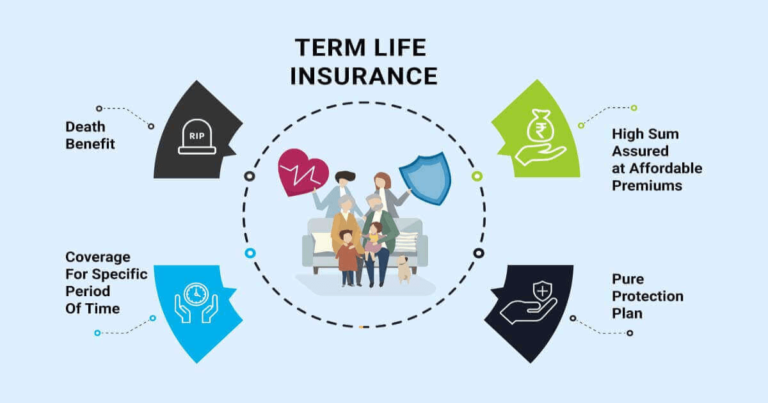Family Income Benefit: The Overlooked Insurance That Can Transform Your Financial Security
When most people think about life insurance, they picture a lump sum payout that goes to their family after they pass away. That model works for many families, but it is not the only option. There is another form of protection that often goes unnoticed yet can be even more practical for households who rely on steady monthly income. It is called Family Income Benefit, and if you have never heard of it before, you are not alone.
This type of cover is straightforward in design, yet powerful in impact. Instead of providing a one time payout, Family Income Benefit pays a regular income to your loved ones if you pass away during the term of the policy. In other words, it replaces the salary or income you would have provided. For families managing mortgages, childcare costs, bills, and day to day living expenses, this form of protection can make the difference between stability and financial hardship.
What Family Income Benefit Actually Means
Family Income Benefit is a type of life insurance, but instead of giving beneficiaries a lump sum, it pays them an agreed monthly or annual income until the end of the policy term. Think of it as a substitute paycheck. If you are the primary earner in your household, your income is not just about numbers on a payslip. It is the engine that keeps everything running rent or mortgage, school fees, food, transport, holidays, and even savings.
With Family Income Benefit in place, if you were to pass away during the policy, your family continues receiving a steady flow of money, just as if you were still working. That makes budgeting easier and avoids the risk of a lump sum being mismanaged, spent too quickly, or eroded by inflation. For many families, this regular payment structure is more realistic because household expenses are monthly, not one time.
Why Family Income Benefit Is Worth Considering
There is a common assumption that lump sum life insurance is always the better option, but Family Income Benefit challenges that idea. One of the biggest advantages is its practicality. Families often find it easier to manage a consistent monthly income than to figure out how to stretch a single large payout over decades.
Another reason this cover is valuable is the protection against overspending. A lump sum might sound attractive, but not everyone is equipped to invest or manage a large amount responsibly. Regular payments remove that worry by providing money when it is actually needed.
Affordability is also a major factor. Family Income Benefit policies are generally cheaper than level term life insurance, because the potential payout decreases as the policy term progresses. For example, if you take out a 20 year policy and pass away in the second year, your family would receive payments for 18 years. If you pass away in the 19th year, they would receive payments for only one year. Because the insurer’s risk decreases as time goes on, premiums are often lower.
The psychological comfort it provides is another underrated benefit. Knowing your family will have a steady replacement income if the worst happens allows you to plan the future with more peace of mind. It turns an overwhelming “what if” into a manageable plan.
Who Needs Family Income Benefit the Most
While Family Income Benefit can be useful for many people, there are certain groups who can benefit more directly from this type of cover. Parents with young children are among the top candidates. Raising children involves long term financial commitments that stretch over years. If the primary earner passes away, ongoing monthly income ensures children’s education, food, clothing, and overall quality of life are not disrupted.
Couples with mortgages or rental obligations also benefit greatly. Instead of worrying about whether a lump sum will last, Family Income Benefit provides money every month to cover housing costs. That consistency keeps families secure in their homes.
Young families just starting out often find this type of insurance appealing because it matches the reality of their expenses. They are usually more concerned about covering everyday bills and childcare than receiving a large payout. It is also especially useful for those who want an affordable option. Because Family Income Benefit is usually cheaper than lump sum life cover, it makes life insurance accessible to families who may be on a tight budget but still want meaningful protection.
How Family Income Benefit Works in Practice
Here is how it typically plays out. You choose the length of the policy term based on your needs. Many parents select a term that lasts until their youngest child is financially independent. You then decide how much monthly income your family would need if you were no longer there. This becomes the benefit amount.
If you pass away during the term, the insurer pays your beneficiaries that monthly income until the end of the policy period. If you outlive the policy term, it ends with no payout, much like traditional term life insurance.
For example, let us say you take out a Family Income Benefit policy for 20 years with a benefit of $2,000 per month. If you pass away after five years, your family would receive $2,000 every month for the remaining 15 years. If you pass away after 15 years, they would receive the payments for the remaining five years. The closer the policy is to its end, the shorter the payout period.
Family Income Benefit vs Lump Sum Life Insurance
Both Family Income Benefit and lump sum life insurance have their strengths, but the best choice depends on your family’s financial situation and habits. With lump sum life insurance, your family receives a large one time payment. This is ideal if you want them to pay off a mortgage, clear debts, or invest for the future. However, it requires financial discipline and planning to make sure the money lasts.
Family Income Benefit, on the other hand, simplifies the process. Instead of worrying about how to manage a big payout, your family simply continues to receive an income. It mirrors the way most families already manage money. The two products are not mutually exclusive. Many families choose to combine them, using lump sum insurance for debts and large expenses, and Family Income Benefit for everyday living costs. This layered approach ensures that both immediate and ongoing financial needs are covered.
Common Misconceptions About Family Income Benefit
One myth is that it is too limited compared to lump sum insurance. People assume that because the payout reduces over time, it is less valuable. In reality, this matches the financial responsibilities most families face. Early in life, you have more expenses like childcare, school fees, and mortgage payments. As time goes on, debts decrease, children become independent, and expenses reduce.
Another misconception is that it is only for parents. While parents are prime candidates, anyone who has dependents relying on their income can benefit. That includes couples without children, caregivers supporting relatives, or even business partners. Some also believe that inflation will erode the value of the monthly payments. While that is a valid concern, many policies allow you to choose an increasing benefit that rises with inflation, ensuring your family maintains purchasing power over the years.
How to Choose the Right Family Income Benefit Policy
Selecting the right Family Income Benefit requires a little planning. The first step is to calculate how much income your family would realistically need if you were gone. This should include essential expenses like rent, mortgage, food, transportation, and education, as well as a buffer for emergencies.
Next, decide on the term length. If you have children, many people choose a term that lasts until their youngest child turns 21 or 25. If you are protecting a mortgage, align the term with the remaining mortgage years. Consider whether you want level payments or payments that increase with inflation. Level payments are cheaper but may lose value over time. Increasing payments cost more but ensure that your family keeps pace with rising costs.
Finally, always check the insurer’s reputation and claims record. Family Income Benefit only matters if your family can rely on the payout when it is needed most. A trusted insurer with a proven track record is essential.
How Family Income Benefit Fits Into a Financial Plan
Think of your financial plan as a toolkit. Savings and investments build wealth. Pensions prepare you for retirement. Life insurance provides a safety net. Family Income Benefit is the tool that ensures day to day financial stability in case the main source of income disappears.
It complements other forms of cover rather than replacing them. If you already have lump sum life insurance, Family Income Benefit ensures your family has steady income while they figure out how best to use the lump sum. If you do not have lump sum cover, Family Income Benefit alone can still provide meaningful protection that prevents financial freefall.
Why Now Is the Time to Act
The cost of living is rising, debts are higher, and families are stretched thinner than ever. In such a climate, losing a primary income earner can be catastrophic. Family Income Benefit is a proactive way to prepare for that possibility without breaking your budget.
Policies are often most affordable when you are younger and healthier. Waiting until later not only increases premiums but can also make it harder to qualify. By acting early, you lock in lower rates and provide peace of mind for years to come.
Final Thoughts on Family Income Benefit
Family Income Benefit may not be the most glamorous or well advertised insurance product, but it is one of the most practical. It does not dangle the promise of a huge lump sum but instead offers something far more relatable: stability, predictability, and peace of mind.
It is about ensuring your family can continue living the life you planned together, even if you are no longer there to provide for them. It mirrors the way households actually manage money, turning a devastating loss into something a little more manageable.
At its core, Family Income Benefit is about responsibility. It is about acknowledging that your family’s wellbeing depends on your income and putting measures in place to protect that income even after you are gone. So while it might not get as much attention as other financial products, Family Income Benefit deserves a place in every serious financial plan. Because in the end, security is not about large payouts or flashy figures. It is about knowing your family can carry on without fear when life takes an unexpected turn.






